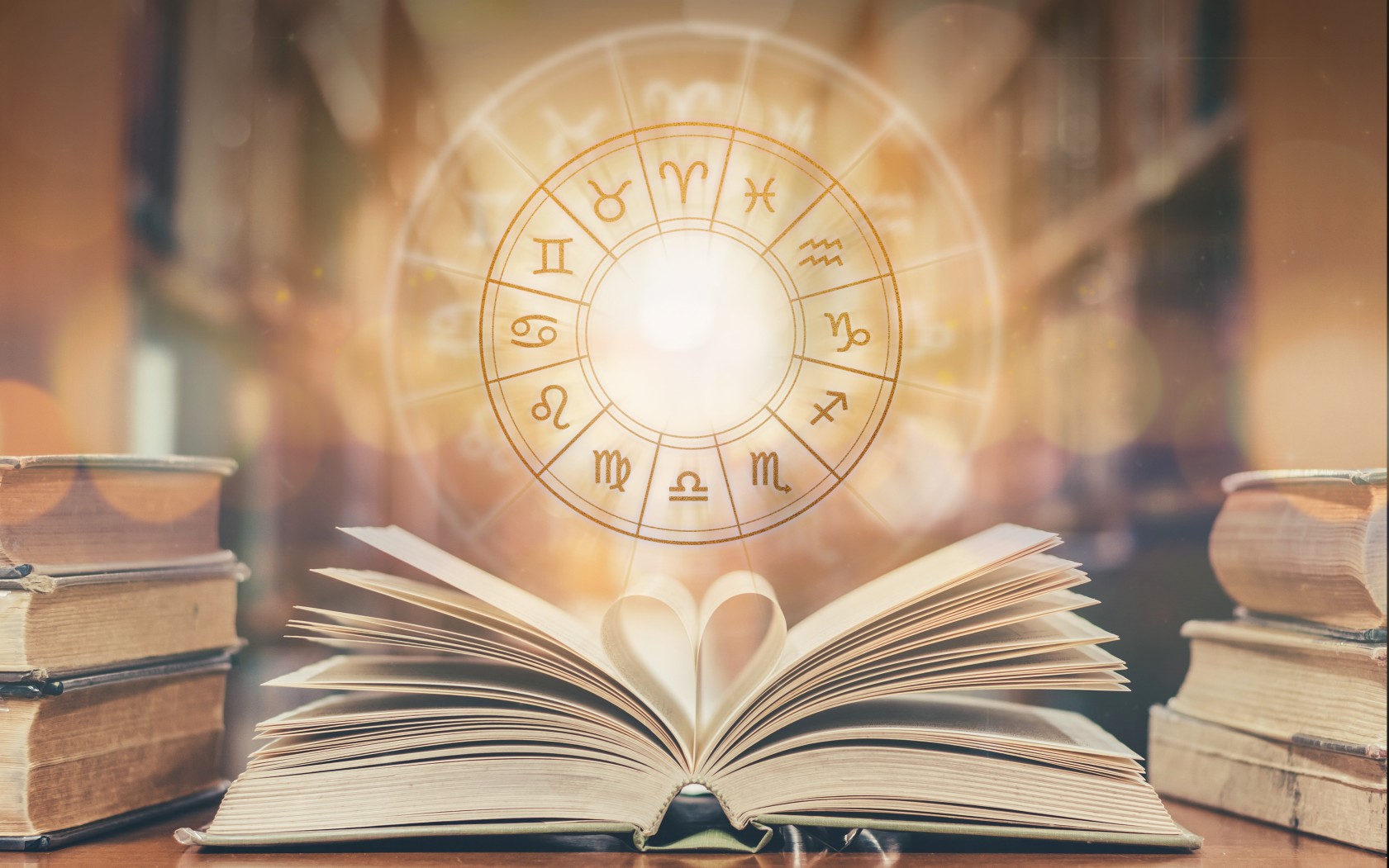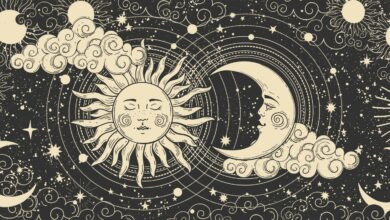International Astrology Day 2021: Celebrating Astrology and The New Age

Have you ever heard of “International Astrology Day”? Would you like a great reason to share valuable insights into Astrology? Consider celebrating this fun day on March 20th this year. It supplies a great opportunity to recognize the contributions made by dedicated astrologers.
You’ll also have a chance to learn more about how ancient people studied the stars. Many astrological societies and clubs conduct public seminars or conferences on International Astrology Day. Use this information to predict life patterns, love and relationship interests, financial circumstances, career, and more!
Read More »About International Astrology Day
The Association for Astrological Networking introduced International Astrology Day to the world in 1993. The organization designated the day as the point in time when the Sun enters the First House of the Zodiac (i.e. the astrological sign of Aries). This date symbolically marks the first day of the “astrological calendar.” It may occur between the 19th and the 22nd of March, but generally falls on the 20th or the 2ist.
Today, scientists know the Earth revolves around the Sun. Yet during the period when astrology developed many centuries ago, most well educated people believed all of the planets revolved around the Earth. The early astrologers envisioned the zodiac as a huge circle, subdivided into 12 “houses” that roughly correspond with the 12 astrological signs. During the course of the year, the Sun proceeds through the houses in consecutive order. It starts in the sign of Aries and ends the astrological year in the sign of Pisces.
Remembering Some Influential Astrologers
Far too many significant astrologers have contributed to the study of Astrology to possibly mention all of them in one brief article. However, one fun activity on International Astrology Day might involve learning about these influential figures. Just consider a few of the most widely known:
Claudius Ptolemy (c.100-c.170)
The Roman scientist Claudius Ptolemy wrote about a variety of topics during the Second Century. Some of his treatises included astrological subjects. He also devoted attention to mathematics, music, and other topics.
Abraham ibn Ezra (c.1089- c.1167)
Likely born in Spain during the Medieval Period, Abraham ibn Ezra traveled widely through the Mediterranean and the Middle East. He wrote extensively about mystical subjects, including astrology. His works influenced later generations of astrologers.
Michel de Nostradamus (1503-1566)
The writings of Nostradamus, a healer and an astrologer who resided in France shortly after the invention of the printing press, gained wide dissemination following his death. He formulated his predictions into verses called “quatrains.” He probably remains best known today for accurately foreseeing the death of the French King, his friend, in a freak accident during a jousting match.
Alan Leo (1860-1917)
The Victorian astrologer Alan Leo wrote a number of influential books on the subject of traditional Western Astrology. His interest in Theosophy likely influenced his focus to some extent. He excelled in conducting extensive case studies, paying considerable attention to natal charts while evaluating events.
Joan C. Quigley (1927-2014)
One of the most famous modern astrologers, Joan Quigley, spent much of her career working in San Francisco. First Lady Nancy Reagan reportedly relied upon her advice extensively in advising President Reagan about scheduling ceremonial events. Joan Quigley prepared highly detailed astrological charts during the course of consultations with clients.
The Vernal Equinox: Entering Aries
International Astrology Day coincides with the Vernal Equinox in the Northern Hemisphere. The entry of the Sun into the sign of Aries symbolizes renewal and regeneration. It marks the beginning of another transit of the Sun through the different houses and signs of the zodiac.
The Sun’s movement from the 12th House of the Zodiac (i.e. Pisces) into the 1st house aptly captures the energy of early Spring. At this time, plants begin to emerge from dormancy. Frozen, hard ground warms and becomes softer, and receptive to the movement of water and expanding root systems. The symbolic connection between the transition from Winter to Spring coincides with a day honoring the communication of astrological knowledge from long ago into the present era.
About Planetary Houses
One especially interesting aspect of this day of recognition concerns the role of the First House in an astrological chart. According to Western Astrology, the “houses” of the zodiac relate to important aspects of a lifetime. Consider some of the most widely accepted meanings of the Houses of the zodiac:
First House
This house reflects the character of an individual. Some astrologers maintain it even impacts personal appearance and physical characteristics, as well as personality.
Second House
The house of material circumstances and finances, the Second House carries a close association with the ways an individual obtains (or loses) money.
Third House
The Third House controls communications and mental energy. It sometimes indicates matters involving brothers and sisters, particularly during childhood.
Fourth House
This house governs household living conditions. Astrologers often consult planetary transits in this house for information concerning parents and domestic issues.
Fifth House
The Fifth House pertains to children and new ventures.
Sixth House
Widely regarded as the house of health and hygiene, the Sixth House proves important in many natal horoscopes.
Seventh House
Romantic relationships and marriage find expression in the Seventh House.
Eighth House
The Eighth House has always carried a close association with inheritances and deaths.
Ninth House
Astrologers consult the Ninth House for information about education, long term travel, academic studies and intellectual and civic pursuits.
Tenth House
This house exerts its primary influence over careers, fame, and reputation.
Eleventh House
The Eleventh House has long carried a strong connection to friends and friendships.
Twelfth House
The mysterious Twelfth House may hold importance in terms of spiritual growth and development. Many “life lessons” reportedly arise here.
Starting The Astrological Year
The selection of International Astrology Day to occur within the First House does not seem like an accident. Traditionally, the astrological sign of Aries carries a close association with the First House. The sun entering Aries basically marks a new beginning, (of sorts).
One interesting fact of interest to people celebrating International Astrology Day: the date also coincides with the traditional Persian New Year. For centuries, people in Iran reportedly started another calendar year by celebrating the holiday of Norouz. The date proves auspicious from the standpoint of enhancing international goodwill.
The Sun in Aries
What does the Sun entering Aries signify? In Western Astrology, the symbol of the Ram stands for Aries. The planet Mars, associated with will power and physical activity, rules over this astrological sign.
Most astrologers describe people born under an Aries sun sign as showing a high level of energy, determination, and enthusiasm. These individuals often display both initiative and a strong independent streak. Spring represents a very auspicious time of year for an Aries!
Some Popular Aries Celebrities
One of the best ways to learn about the impact of Aries on a horoscope involves considering people born under this astrological sign. Today, many celebrities celebrate birthdays during the period between March 21st and April 19th. Just a few of the best known Aries within the public spotlight include:
- Diana Ross;
- Lady Gaga;
- Robert Downey, Jr.;
- Mariah Carey;
- Ashley Judd;
- Eddie Murphy;
- Celine Dion.
Your Horoscope For March 20,2021
What will your horoscope hold for you during International Astrology Day on March 20th, 2021? First, remember in everyone’s astrological chart, the Sun will enter the astrological sign of Aries on this day. It moves out of Pisces and into Aries at 9:37 a.m. on March 20th. The planet Mars on that day will continue its transit through Gemini. Some people born under the sign of Gemini may experience a big surge of energy on March 20th, as transiting Mars conjoins their natal Sun.
Probably one of the most significant aspects of your horoscope on International Astrology Day occurs at 6:13 p.m. At that time, the Moon, a celestial body often signifying emotion, forms a favorable trine to the planet Jupiter (a body frequently associated with good luck). This time might pose a great occasion for some couples to plan an engagement, or at least to enjoy a romantic dinner celebration together.
International Astrology Day: A 28-year Old Tradition
This year, March 20th marks the arrival of the 28th International Astrology Day. Use this time well to network with friends while learning about astrology. It may help you enjoy a brighter, more exciting 2021!





